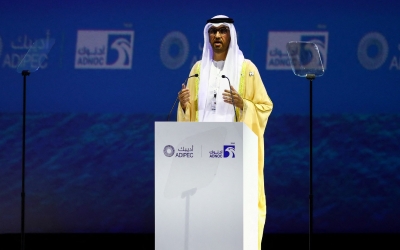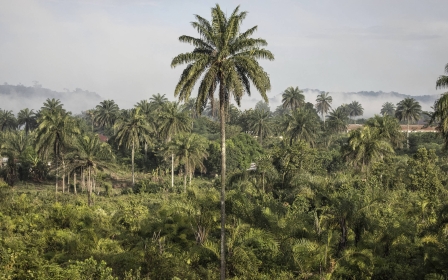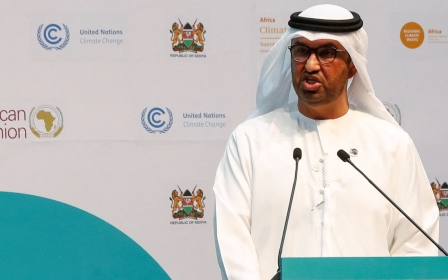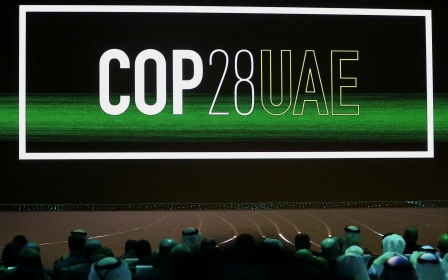UAE firm inks deal to buy a fifth of Zimbabwe's land for carbon credit scheme
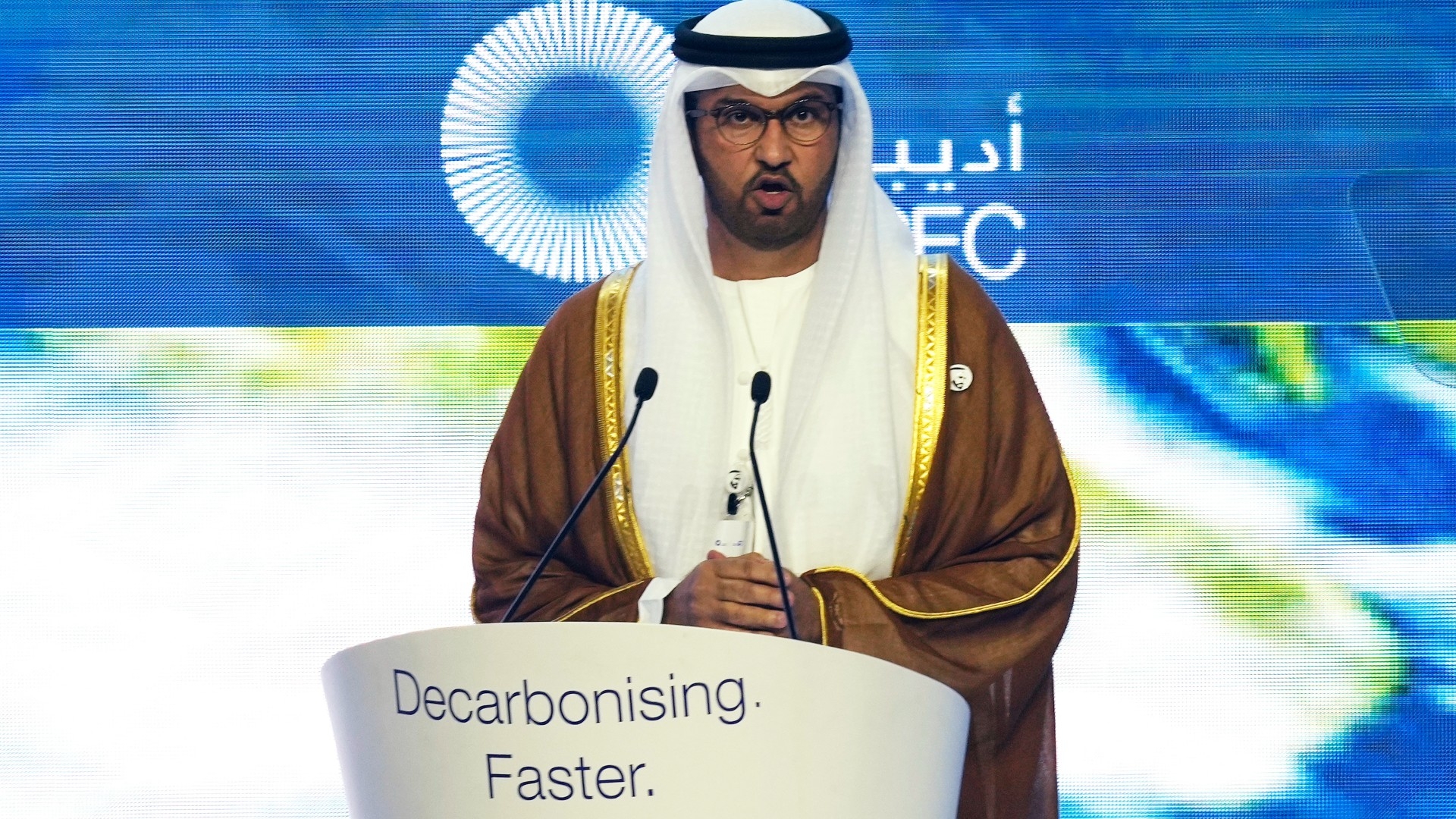
A Zimbabwe- and Dubai-based firm has inked a memorandum of understanding (MOU) with Zimbabwe that would see a fifth of the southern African country’s landmass conceded for carbon credit production.
The deal, which was announced in Harare on 29 September, will give Blue Carbon blanket control over 7.5 million hectares of Zimbabwean forest.
The agreement comes shortly after the firm signed a slew of similar controversial MOUs with other African countries, including a deal with Liberia conceding 10 percent of the country’s territory to the firm, in breach of several land laws.
The flurry of contracts comes ahead of the UN Climate Summit Cop 28, set to take place in Dubai in November, with carbon credits slated to be a topline issue.
The global $2bn voluntary carbon offset market allows carbon emitters to offset emissions by purchasing credits from emission-reducing projects primarily in forest conservation.
New MEE newsletter: Jerusalem Dispatch
Sign up to get the latest insights and analysis on Israel-Palestine, alongside Turkey Unpacked and other MEE newsletters
Blue Carbon’s chairman, Sheikh Ahmed Dalmook Al Maktoum, a member of the UAE royal family, said the deal could funnel $1.5bn in climate finance into the country.
The Dubai-based firm was established only a year ago and has no track record of managing carbon offset projects.
Campaigners have warned that Al Maktoum’s ties to the royal family, who are heavily invested in oil and gas infrastructure, mean that these deals carry a “greenwashing risk,” as the harvested credits could also be used to offset UAE’s own emissions.
'A secret'
Zimbabwe is the third largest carbon credit producer in Africa and the site of the Kariba project, the world’s first large-scale forest protection project spanning 785,000 hectares, jointly managed by Zimbabwean entrepreneur, Stephen Wentzel, and Swiss carbon credits trading company, South Pole.
Attracting multinationals such as Gucci and Volkswagen, South Pole reaped 100 million euros from the project. Half of these profits were originally promised to local communities, but a Follow the Money investigation revealed that most of that sum remained unaccounted for.
'The money does not usually go directly to the community which is involved in the preservation of the forest'
- Tracy Mutowekuziva
In May, the Zimbabwean government revised its carbon regulations to reduce a government share in profits from carbon offset projects to 30 percent. Carbon trading developers will retain 70 percent, but will have to invest a quarter of their profits in community projects.
But according to Tracy Mutowekuziva, an attorney for the Centre for Natural Resource Governance (CNRG), there are concerns about whether the money will reach the impacted communities.
“The money does not usually go directly to the community which is involved in the preservation of the forest,” Mutowekuziva told MEE. “Usually the government just takes the money and they do what they think the community needs.”
Like the MOU with Liberia that preceded it, the details of the contract are opaque.
“It’s a secret…We really don’t know the figures. We can’t even tell if the (value) of the land is accurately measured or if it tallies with the amount being offered by the buyer,” Mutowekuziva said.
A resource curse
Customary land rights are not enshrined in Zimbabwean law, which stipulates that communal land is owned by the government.
“We know that the government has not respected communal land rights historically,” a communication specialist for Zimbabwe, Shaun Matsheza, told MEE. “This is a colonial legacy that was not corrected upon independence.”
'You can be uprooted at the drop of a hat'
- Shaun Matsheza, communication specialist for Zimbabwe
“You can be uprooted at the drop of a hat,” Matsheza said. ”You can't actually trust that any investments you make in your land are going to pay off in the end because you could easily be displaced.”
According to Matsheza, no villages were consulted about the deal.
“This has been the case for multiple other deals which the government makes behind closed doors, and is never actually put up for deliberation or any form of democratic process,” Matsheza said.
Zimbabwe has long been plundered for its resources, with coal mining swallowing vast tracts of land and displacing thousands. A 2019 report by a local watchdog found that mining projects would displace at least 30,000 families within five years.
In 2010, diamond mining in Marange saw thousands of people forcibly relocated to a deserted government farm without compensation.
“Every time a resource is discovered it has terrible implications for the community…it’s a resource curse,” Matsheza told MEE.
Swathes of the land earmarked for the deal also include existing nature reserves.
Blue Carbon says it adheres to the standards of REDD+, the international initiative to reduce emissions from deforestation.
However, REDD+ requires additionality, which dictates that a project generates additional benefits, such as carbon reductions, to the ones that would naturally occur without it.
And by buying land that includes protected land, Blue Carbon would not be providing any additional benefits.
Mounting scientific evidence is casting doubt on the efficacy of carbon credits in reducing emissions: a recent study on Verra, the world’s largest carbon standard framework, found that 94 percent of the credits had no benefit for the climate.
“It's essentially increasing the licence for developed countries to further pollute the environment,” Matsheza told MEE.
“What Blue Carbon has done is identify this opportunity and place themselves as the middleman between developed countries and developing countries who are yet to fully develop mechanisms for participating in this market.”
Middle East Eye delivers independent and unrivalled coverage and analysis of the Middle East, North Africa and beyond. To learn more about republishing this content and the associated fees, please fill out this form. More about MEE can be found here.


